Lenny Moss began academic studies in earnest only after 5 years of early 70’s political activism during which time he autodidactically discovered and became enamored of the Marxist-Freudian theorizing of Wilhelm Reich and Herbert Marcuse. He taught his first class on the philosophy of nature at the San Francisco Socialist School in 1979. Moss began his academic studies with degrees in biochemistry and molecular biology. He then went into graduate studies at UC Berkeley in biophysics and comparative biochemistry completing his doctorate in research undertaken at the Lawrence Berkeley Laboratories (under the mentorship of Harry Rubin, Mina Bissell and Gordon Parry). His doctoral research was concerned with the epigenetic regulation of heterogenous cell surface glycosylation relevant to the tumor immune evasion of mammary carcinoma cells. Subsequently he worked for several years doing research at UC San Francisco Medical Center (UCSF) on the role of developmental-stage specific cell surface glycosylation of cell adhesion molecules in the regulation of human placental cell invasiveness. Having also informally studied philosophy and social theory at Berkeley with Hubert Dreyfus, Charles Taylor, Robert Bellah and others, Moss elected to then undertake a second PhD in philosophy at Northwestern University enjoying the mentorship of Thomas McCarthy, Stephen Toulmin, Arthur Fine, Sam Todes and Jürgen Habermas amongst others. Moss was professor of philosophy at the Universities of Notre Dame (USA) and Exeter (UK) for over 20 years where his teaching included classes in the Philosophy of Biology, Philosophy of Nature, Philosophy of Science, Analytic Metaphysics, Philosophy of Technology, Philosophy of Evil, Ethics, Body and Mind, the Idea of Race, Reading Courses in Kant, in Heidegger’s Being and Time, in Nietzsche’s Genealogy of Morals, in selected readings of Habermas and his “signature class” in Philosophical Anthropology. He successfully supervised seven doctoral dissertations, five of whom went on to tenure-line academic appointments (four of whom are women). Moss was recognized by the Student Guild of the University of Exeter under the category of “Best Post- Graduate Research Supervisor.” He is a long-time member of the Editorial Boards of the Notre Dame Philosophical Reviews and Biological Theory and has become the section editor for a new feature on “agency” for the latter. He has previously been a Visiting Fellow at the University of Sydney, The Research Humanities Center of Rice University, and the University of New Mexico. He was the 2 nd Annual Alexander von Humboldt Symposium Scholar of the Royal Irish Academy (2009) and the annual “Science, Technology, and the Human Condition” Visiting Scholar of the Humanities Center of Grinnell College (2014). He is currently funded under the “Agency, Directionality and Function” grant of the Templeton Foundation.
Investigadores visitantes
|
Anna Marmodoro holds the Chair of Metaphysics in the Philosophy Department of Durham University (UK) and is concomitantly an honorary Associate Member of the Faculty of Philosophy of the University of Oxford (UK). Before her professorial appointment at Durham University in 2016, Anna worked for a decade at the University of Oxford, as a Junior Research Fellow and subsequently an Official Fellow of Corpus Christi College. She has held visiting positions internationally, in Europe, the U.S. and Australia; during the current academic year she is a visiting Professor at UNAM in Mexico City. She is the co-editor of the peer-reviewed academic journal Dialogoi. Ancient Philosophy Today, published by Edinburgh University Press. Anna specializes in two main research areas: on the one hand, metaphysics, and on the other, ancient, late antiquity and medieval philosophy. She has also strong research interests in the philosophy of science and the philosophy of religion. Her latest monograph is Properties in Ancient Metaphysics (Cambridge University Press, 2023). She is currently working on a new one, on Parmenidean Essentialism, under contract with Oxford University Press.
|
|
|
|
|
|
Filosofía de la lógica, Filosofía del Lenguaje, Filosofía de las Matemáticas My goal is to describe a philosophy of language suitable for mathematical language, in order to better understand how we acquire mathematical knowledge. My work in this area is informed by the analytic tradition of Frege, Russell, Church and Kripke. In addition to studying objective conceptual contents, I also study how their antecedents entered our species and our culture. Recently, prior to joining the institute, I have been writing an entry on the great Alonzo Church for the Stanford Encyclopedia of Philosophy. You can find out more at https://olivermarshall.commons.gc.cuny.edu Publications
|
|
|
|
|
|
lenny.moss@filosoficas.unam.mx El enfoque de la filosofía de Lenny Moss se puede caracterizar con respecto a los siguientes compromisos. 1) Él cree que cualquier empresa orientada al conocimiento que no se comprometa con las ciencias naturales no puede ni debe tomarse en serio. 2) Sin embargo, no cree que la filosofía deba relegarse a los presupuestos de ninguna ciencia ni aceptar al pie de la letra la fragmentación del conocimiento y las metodologías que las ciencias contemporáneas realizan en la actualidad. Considera que el mandato de la filosofía es la única responsabilidad disciplinaria de reunir, sintéticamente, los recursos tanto de las ciencias en general como de la reflexión filosófica (incluida la fenomenológica, axiológica y especulativa). 3) Si bien aprecia la claridad lógica del estilo analítico de la filosofía, continúa encontrando la mayor profundidad de penetración y provocación intelectual en el diálogo con filósofos de tradición alemana como Kant, Hegel, Heidegger, Plessner, Habermas y otros investigadores de la “Escuela de Frankfurt”. 4) A diferencia de aquellos para quienes el trabajo filosófico se ha convertido en otra forma de “ciencia normal”, Moss suscribe la distinción de Max Horkheimer entre teoría “tradicional” y “crítica” y cree que la filosofía, como vocación intelectual y no meramente académica, debe responsabilizarse de las intenciones de una empresa conscientemente normativa. Leer mas Lenny Moss comenzó sus estudios académicos en serio solo después de cinco años de activismo político a principios de los 70, tiempo durante el cual descubrió de forma autodidacta y se enamoró de la teoría marxista-freudiana de Wilhelm Reich y Herbert Marcuse. Impartió su primera clase sobre filosofía de la naturaleza en la Escuela Socialista de San Francisco en 1979. Moss comenzó sus estudios académicos con títulos en bioquímica y biología molecular. Luego realizó estudios de posgrado en UC Berkeley en biofísica y bioquímica comparativa y completó su doctorado en investigación realizada en los Laboratorios Lawrence Berkeley (bajo la tutoría de Harry Rubin, Mina Bissell y Gordon Parry). Su investigación doctoral se centró en la regulación epigenética de la glicosilación de la superficie celular heterogénea relevante para la evasión inmune tumoral de las células de carcinoma mamario. Posteriormente, trabajó durante varios años investigando en el Centro Médico de UC San Francisco (UCSF) sobre el papel de la glicosilación de la superficie celular específica de la etapa de desarrollo de las moléculas de adhesión celular en la regulación de la invasividad de las células placentarias humanas. Después de haber estudiado también de manera informal filosofía y teoría social con Hubert Dreyfus, Charles Taylor, Robert Bellah y otros en Berkeley durante estos años, Moss decidió realizar un segundo doctorado en filosofía en la Universidad Northwestern con la tutoría de Thomas McCarthy, Stephen Toulmin, Arthur Fine , Sam Todes y Jürgen Habermas entre otros. Moss fue profesor de filosofía en las Universidades de Notre Dame (USA) y Exeter (UK) durante más de 20 años, donde su enseñanza incluyó clases de Filosofía de la Biología, Filosofía de la Naturaleza, Filosofía de la Ciencia, Metafísica Analítica, Filosofía de la Tecnología, Filosofía del Mal, Ética, Cuerpo y Mente, la idea de raza, Cursos de lectura en Kant, en Ser y tiempo de Heidegger, en Genealogía de la moral de Nietzsche, en lecturas seleccionadas de Habermas y su “clase distintiva” en Antropología filosófica. Supervisó con éxito siete tesis doctorales, cinco de las cuales pasaron a puestos académicos permanentes (cuatro de los cuales son mujeres). Moss fue reconocido por el Sindicato de Estudiantes de la Universidad de Exeter en la categoría de "Mejor supervisor de investigación de posgrado". Es miembro desde hace mucho tiempo de los consejos editoriales de Notre Dame Philosophical Reviews and Biological Theory. Anteriormente fue miembro visitante en la Universidad de Sydney, el Centro de Investigación en Humanidades de la Universidad Rice y la Universidad de Nuevo México. Fue becario del segundo Simposio Anual Alexander von Humboldt de la Royal Irish Academy (2009) y becario visitante anual de "Ciencia, Tecnología y la Condición Humana" del Centro de Humanidades de Grinnell College (2014). Actualmente está financiado por la subvención "Agencia, direccionalidad y función" de la Fundación Templeton.
Selected Publications
Monographs What Gene’s Can’t Do (MIT, 2003), Japanese Edition (Seitosha, 2008)
Edited Volume
Refereed Journal articles and Book Chapters "Normativity, System-Integration, Natural Detachment and the Hybrid Hominin" (2021) Phenomenology and the Cognitive Sciences 20 (1): 21-37. “New Naturalism and Critical Theory” (2017) in Gare, A., and Hudson, W. (eds) For a New Naturalism, Telos Press, NY, pp78-104. “Detachment Theory, Agency and the Normative Nihilism of New Materialism” (2017) In Zammito, J. and Ellenzweig, S. (eds) Materialism and the New Politics of Ontology: History, Philosophy, Science, Routledge, New York, pp 227-249. “The Grassblade beyond Newton: Self-organizing Matter and the Pragmatizing of Kant for Evolutionary-Developmental Biology” (with Stuart Newman) (2016) Lebenswelt 7:94-111. “The Hybrid Hominin: A Renewed Point of Departure for Philosophical Anthropology” in Naturalism and Philosophical Anthropology: Nature, Life, and the Human between Transcendental and Empirical Perspectives, (Honenberger, P. Ed) (2016) Palgrave Macmillan, pp171-182. "Detachment and Compensation: Groundwork for a Metaphysics of Biosocial Becoming" (2014) Philosophy and Social Criticism 40:91-105. "Moral Molecules, Modern Selves and Our 'Inner Tribe'" (2013) The Hedgehog Review 15 (1) Spring 2013, pp19-33. “On nature and normativity: Normativity, teleology, and mechanism in biological explanation” 2012 (with Dan Nicholson) Studies in History and Philosophy of Biological and Biomedical Sciences 43:88-91. “Is the Philosophy of Mechanism Philosophy Enough?” (2012) Studies in History and Philosophy of Biological and Biomedical Sciences 43:164-172. “Science, Normativity and Skill: Reviewing and Renewing the Anthropological Basis of Critical Theory” (with Vida Pavesich) (2011) Philosophy and Social Criticism 37:139-165. "Detachment, Genomics, and the Nature of Being Human" (2009) in New Visions of Nature: Complexity and Authenticity, Drenthen, Keulartz, Proctor (Eds), Springer International Library of Environmental, Agricultural and Food Ethics, pp 103-116. "The Meanings of the Gene and the Future of the Phenotype "(2008) Genomics, Society and Policy 4:38-57. "Contra Habermas and Towards a Critical Theory of Human Nature and the Question of Genetic Enhancement” (2007) New Formations 60:139-149. "The Question of Questions: What is a Gene?" (2006) Journal of Theoretical Medicine and Bioethics 27:535-540. "Redundancy, Plasticity, and Detachment: the Implications of Comparative Genomics for Evolutionary Thinking"(2006) Philosophy of Science 73: 930-946. "Darwinism, Dualism, and Biological Agency" (2005) Hösle, V. & Illies, C (Eds). Darwinism and Philosophy , Notre Dame: University of Notre Dame Press, pp 349-364. “Human Nature, the Genetic Fallacy and the Philosophy of Anthropogenesis” (2004) Jahrbuch 2004 of the Kulturwissenschaftliches Institut, ed. Jörn Rüsen, 111-122 “One, Two (Too?), Many Genes” (2003) The Quarterly Review of Biology 78:57-67. “From Representational Preformationism to the Epigenesis of Openness to the World? Reflections on a New Vision of the Organism” (2002) in From Epigenesis to Epigenetics – The Genome in Context, Van Speybroeck, Van de Vijver, de Weale (Eds), Annals of the New York Academy of Sciences 981:219- 230. “Deconstructing the Gene and Reconstructing Molecular Developmental Systems” (2001) Oyama, S.; Gray, R.; Griffiths, P. (Eds) Cycles of Contingency: Developmental Systems and Evolution Cambridge MA: MIT, pp 85-98. "Genes and Generalizations: Darden's Strategies and the Question of Context" (1995) Biology and Philosophy 10:483-488 Moss, L, Prakobphol A, Wiedmann TW, Fisher SJ, Damsky CH (1994) “Glycosylation of Human Trophoblast Integrins is Stage and Cell-Type Specific” Glycobiology 4:567-575. "A Kernel of Truth? On the Reality of the Genetic Program" (1992) Philosophy of Science 1992. Volume 1: 335-348. "Ethical Expertise and Moral Maturity: Conflict or Complement?" (1991) Philosophy and Social Criticism. 16:227-235. Parry, G.; Beck, J.; Moss, L.; Bartley, J.; Ojakian, G. (1990) "Determination of apical membrane polarity in mammary epithelial cell cultures: the role of cell-cell, cell-substratum and membrane cytoskeleton interactions" Experimental Cell Research, 188:302-311. Moss, L.; Greenwalt, D.; Cullen, B.; Dinh, N.; Ranken, R.; Parry, G. (1988) "Cell-to-cell heterogeneity in the expression of carbohydrate based epitopes of a mucin-type glycoprotein on the surface of human mammary carcinoma cells" Journal of Cell Physiology, 137:310-320. Parry, G.; Cullen, B.; Kaetzel, C.; Kramer, R.; Moss, L. (1987) "Regulation of differentiation and polarized secretion in mammary epithelial cells in culture: extracellular matrix and membrane polarity influence" Journal of Cell Biology 105:2043-2051.
Reviews Review: Helmuth Plessner, Levels of the Organic Life and the Human: An Introduction to Philosophical Anthropology Notre Dame Philosophical Reviews 2020.03.28. Review: John H. Zammito, The Gestation of German Biology: Philosophy and Physiology from Stahl to Schelling (2018) Notre Dame Philosophical Reviews 2018.08.39. Review: Tim Lewens, Cultural Evolution: Conceptual Challenges (2016) Notre Dame Philosophical Reviews 2016.05.06. Review: Fred Dallmayr, Return to Nature? An Ecological Counterhistory.(2012) Notre Dame Philosophical Reviews (2012.10.18) “Context, context, context! A delicate empiricism for biotechnology.” Review of Beyond Biotechnology: The Barren Promise of Genetic Engineering, Craig Holdrege & Steve Talbott (2008) Nature Biotechnology 26:59-60. “From Describing to Performing the ‘Socioethical’ Engagement with Systems Biology” (2007) The American Journal of Bioethics 7:86-87. Review: Foundations of Biophilosophy, Martin Mahner & Mario Bunge (2000) The Quarterly Review of Biology, pp 57-67 Review: Timely Mediations: Martin Heidegger and Postmodern Politics, Leslie Paul Thiele (1997) Book notes, ETHICS 107:767-768.
Encyclopedia, Lexicon and other Short Entries “Human Nature” Cambridge Habermas Lexicon (2019). “Helmuth Plessner” Cambridge Habermas Lexicon (2019). “Prague-a 21st century salon and beyond?” (2017) Philosophy and Social Criticism 44:284-285. “Teleology” Encyclopedia of Systems Biology (2013) "The Gene-For Confusion" (2001) The Philosopher's Magazine #13:46-47. “Life, Origins of” Routledge Encyclopedia of Philosophy (1998)
Work in Progress Moss is currently working on a monograph entitled Natural Detachment, The Hybrid Hominin and the Gambit of Geist: Groundwork for a new Philosophical Anthropology.
|
|
|
|
|
|
Inicio: Octubre 2019 Frances Kissling es la presidenta del Centro de Ética y Política Social de Salud, en Washington DC. Es activista en los campos de la religión, la reproducción y los derechos de las mujeres. En 1977 fue nombrada Presidenta fundadora de la Federación Nacional del Aborto, cargo que ocupó hasta 1980. Fue Presidenta de Catholics for Choice (fundada en 1973) desde 1982 hasta 2007. Kissling fue miembro del Programa de Becas del Instituto Radcliffe 2007-2008, parte del Instituto Radcliffe para Estudios Avanzados de la Universidad de Harvard. Ha enseñado en el Centro de Bioética de la Universidad de Pennsylvania. Kissling ha escrito mucho sobre aborto, reproducción, ética de la población y feminismo. Escribe regularmente para The Nation y The Huffington Post. |
|
| Estancias anteriores | |
 |
Marc Benjamin Sable |
|
|
Michèle Friend |
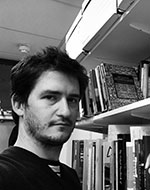 |
Maksymilian del Mar |
 |
Pablo Ariel Rapetti |
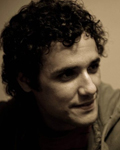 |
Maurizio Esposito |
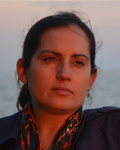 |
Mariana Carolina Castillo Merlo |
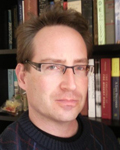 |
David Koepsell |
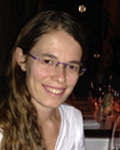 |
María Laura Manrique |
Aviso de privacidad
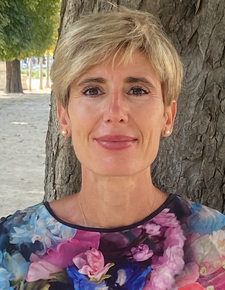
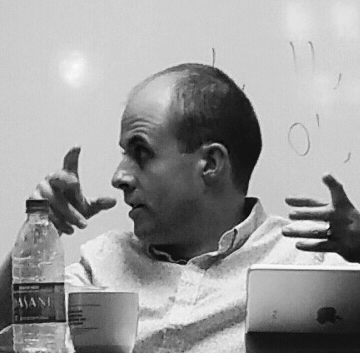
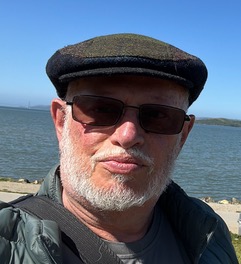
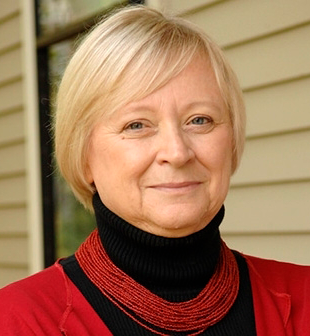
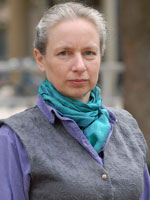



 Circuito Maestro Mario de la Cueva s/n, Ciudad Universitaria, C.P. 04510, Coyoacán México, CDMX
Circuito Maestro Mario de la Cueva s/n, Ciudad Universitaria, C.P. 04510, Coyoacán México, CDMX